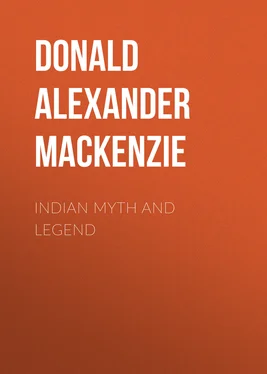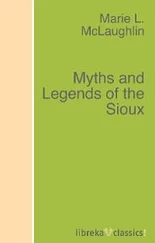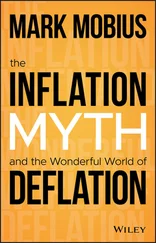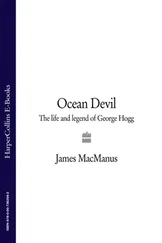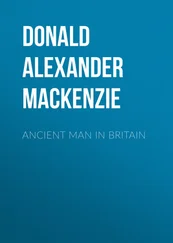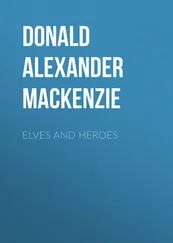Donald Alexander Mackenzie - Indian Myth and Legend
Здесь есть возможность читать онлайн «Donald Alexander Mackenzie - Indian Myth and Legend» — ознакомительный отрывок электронной книги совершенно бесплатно, а после прочтения отрывка купить полную версию. В некоторых случаях можно слушать аудио, скачать через торрент в формате fb2 и присутствует краткое содержание. Жанр: foreign_prose, foreign_religion, Философия, Мифы. Легенды. Эпос, foreign_psychology, foreign_antique, на английском языке. Описание произведения, (предисловие) а так же отзывы посетителей доступны на портале библиотеки ЛибКат.
- Название:Indian Myth and Legend
- Автор:
- Жанр:
- Год:неизвестен
- ISBN:нет данных
- Рейтинг книги:4 / 5. Голосов: 1
-
Избранное:Добавить в избранное
- Отзывы:
-
Ваша оценка:
- 80
- 1
- 2
- 3
- 4
- 5
Indian Myth and Legend: краткое содержание, описание и аннотация
Предлагаем к чтению аннотацию, описание, краткое содержание или предисловие (зависит от того, что написал сам автор книги «Indian Myth and Legend»). Если вы не нашли необходимую информацию о книге — напишите в комментариях, мы постараемся отыскать её.
Indian Myth and Legend — читать онлайн ознакомительный отрывок
Ниже представлен текст книги, разбитый по страницам. Система сохранения места последней прочитанной страницы, позволяет с удобством читать онлайн бесплатно книгу «Indian Myth and Legend», без необходимости каждый раз заново искать на чём Вы остановились. Поставьте закладку, и сможете в любой момент перейти на страницу, на которой закончили чтение.
Интервал:
Закладка:
The Indian father-slaying myth appears to be connected with the doctrine of reincarnation. In the Laws of Manu it is stated that “the husband, after conception by his wife, becomes an embryo and is born again of her; for that is the wifehood of a wife, that he is born again by her”. 60In the famous story of Shakuntălā, the husband is similarly referred to as the son of his wife, the son being a reincarnation of the father. 61This belief resembles the Egyptian conception which is summed up in the phrase “husband of his mother”. 62
At the barley harvest in spring and the rice harvest in autumn offerings were made to the gods. A sacrificial cake of the new barley or rice was offered to Indra and Agni, a mess of old grain boiled and mixed with milk and water was given to the other gods, and a cake was also offered to Father Heaven and Mother Earth in which clarified butter was an important ingredient; or the offering might consist entirely of butter, because “clarified butter is manifestly the sap of these two, Heaven and Earth; … he (the offerer) therefore gladdens these two with their own sap or essence”.
The reason for this harvest offering is explained as follows: The gods and the demons contended for supremacy. It chanced that the demons defiled, partly by magic and partly by poison, the plants used by men and beasts, hoping thus to overcome the gods. Men ceased to eat and the beasts stopped grazing; all creatures were about to perish because of the famine.
Said the gods: “Let us rid the plants of this.”
Then they offered sacrifices and “accomplished all that they wanted to accomplish, and so did the Rishis”.
A dispute then arose among the gods as to who should partake of the offerings of the firstfruits—that is, of the new plants which replaced those the demons had poisoned. It was decided to run a race to settle the matter. Indra and Agni won the race and were therefore awarded the cake. These two gods were divine Kshatriyas (noblemen), the others were “common people”. Whatever Kshatriyas conquer, the commoners are permitted to share; therefore the other gods received the mess of old grain.
After the magic spell was removed from the plants by the gods, men ate food and cattle grazed once again. Ever afterwards, at the beginning of each harvest, the first fruits were offered up to Indra and Agni. The fee of the priest was the first-born calf “for that is, as it were, the firstfruits of the cattle”. 63
The popular Thunder god of the Vedic period bears a close resemblance to the hard-drinking, kindly, and impulsive Thor, the Teutonic god of few words and mighty deeds, the constant “friend of man” and the inveterate enemy of demons. In the hymns Indra is pictured as a burly man, with “handsome, prominent nose”, “good lips”, and “comely chin”; he is “long-necked, big-bellied, strongly armed”, and has a weakness for ornaments. He is much addicted to drinking “sweet, intoxicating Soma”; he “fills his stomach”; he quaffs “thirty bowls” at a single draught ere he hastens to combat against “hostile air demons”. Sometimes he is placed in a difficulty when two tribes of his worshippers are in conflict: both cry to him for victory, but—
The god giveth victory unto him
Who with generous heart pours out
The draught he thirsts for—
Nor feels regret in giving;
Indra joins with him upon the battlefield.
The Aryans, who were as notorious cattle lifters as the Gauls and the Scottish Highlanders, were wont to invoke the god ere they set out on a raid, chanting with loud voices:
Indra, whose riches are boundless, O grant us
Thousands of beautiful cows and horses:
Destroy, thou mighty one, all who despise us,
Visit with death all those who would harm us, and
Indra, whose riches are boundless, O grant us,
Thousands of beautiful cows and horses.
In other hymns the Thor-like character of Indra, the war god, is naively depicted. A sceptic is supposed to say: “Many men declare that there is no Indra. Who ever saw him? Why should we adore him?”
The god makes answer: “O singer, I am : behold me! I am here now, and I am greater than any living being. I delight in the performance of holy rites. I am also the Destroyer; I can hurl creation to ruin.” Rigveda , viii, 89.
I never knew a man to speak so to me,
When all his enemies are safely conquered;
Yea, when they see how fierce the battle rages,
They even promise me a pair of bullocks.
When I am absent in far distant places,
Then all with open hands their gifts would bring me …
Lo! I will make the wealthy niggard needy,
Seize by the foot and on the hard rock dash him.
The lord of both the worlds hates all the haughty,
He cares for those who feel themselves but human.
These verses recall: “Silence, thou evil one,” roared Thor, “or else with my hammer shall I strike thy head off and end thy life.”
Then did Loke answer humbly: “Silent indeed I shall be now, O Thor, for I know full well thou wilt strike.” 65
6
THE PARADISE OF INDRA
From a Rock Sculpture at Mâmallapuram
The human qualities of Indra are illustrated in epic narrative. Arjuna, the Indian Achilles, is his son, and pays a visit to the brilliant Celestial city on the summit of Mount Meru, where flowers are ever blooming, and pretty nymphs dance to pleasure battle-slain warriors.
Arjuna saluted his divine sire. “And Indra thereupon embraced him with his round and plump arms. And taking his hand, Shakra (Indra) made him sit on a portion of his own seat.... And the lord of the Celestials—that slayer of hostile heroes—smelt the head of Arjuna, bending in humility, and even took him upon his lap.... Moved by affection, the slayer of Vritra touched that beautiful face with his own perfumed hands. And the wielder of the thunderbolt, patting and rubbing gently again and again with his own hands, which bore the marks of the thunderbolt, the handsome and large arms of Arjuna, which resembled a couple of golden columns and were hard in consequence of drawing the bowstring and shooting arrows, began to console him. And the slayer of Vritra … eyeing his son of curling locks smilingly and with eyes expanded with delight, seemed scarcely to be gratified. The more he gazed, the more he liked to gaze on. And seated on one seat, the father and son enhanced the beauty of the assembly, like the sun and moon beautifying the firmament together.” 66
Indra was attended in his heaven by vague spirits, called Vasus, who appear to have acted as his counsellors. When Bhishma, a hero of the great Bhărata war, was slain in battle, he was given a place among the Vasus. The Thunder god's queen is a shadowy personality, and is called Indrani.
Indra was attended by a dog, as befitted a deity of primitive huntsmen. After the early Aryan period, he showed less favour for his bays and chariot, and seated himself upon a great white elephant, “the handsome and ever victorious”, named Airavata; it “was furnished with four tusks” and “resembled the mountain of Kailasa with its summits”.
CHAPTER II
The Great Vedic Deities
Agni the Fire God—Source of Life—The Divine Priest—Myths regarding his Origin—The Child God—Resemblances to Heimdal and Scyld—Messenger of the Gods—Martin Elginbrodde—Vayu or Vata, the Wind God—Teutonic Vate and Odin—The Hindu “Wild Huntsman”—Rudra the Howler—The Rain God—Sublime Varuna—The Omniscient One—Forgiver of Sins—Mitra, an ancient Deity—Babylonian Prototype—A Sun God—A Corn God—Mitanni Deities—Surya, the Sun God—The Adityas—Ushas, Goddess of Dawn—Ratri, Night—Chandra, the Moon—Identified with Soma—The Mead of the Gods—A Humorous Hymn—Sources of Life—Origin of Spitting Ceremonies.
Читать дальшеИнтервал:
Закладка:
Похожие книги на «Indian Myth and Legend»
Представляем Вашему вниманию похожие книги на «Indian Myth and Legend» списком для выбора. Мы отобрали схожую по названию и смыслу литературу в надежде предоставить читателям больше вариантов отыскать новые, интересные, ещё непрочитанные произведения.
Обсуждение, отзывы о книге «Indian Myth and Legend» и просто собственные мнения читателей. Оставьте ваши комментарии, напишите, что Вы думаете о произведении, его смысле или главных героях. Укажите что конкретно понравилось, а что нет, и почему Вы так считаете.
